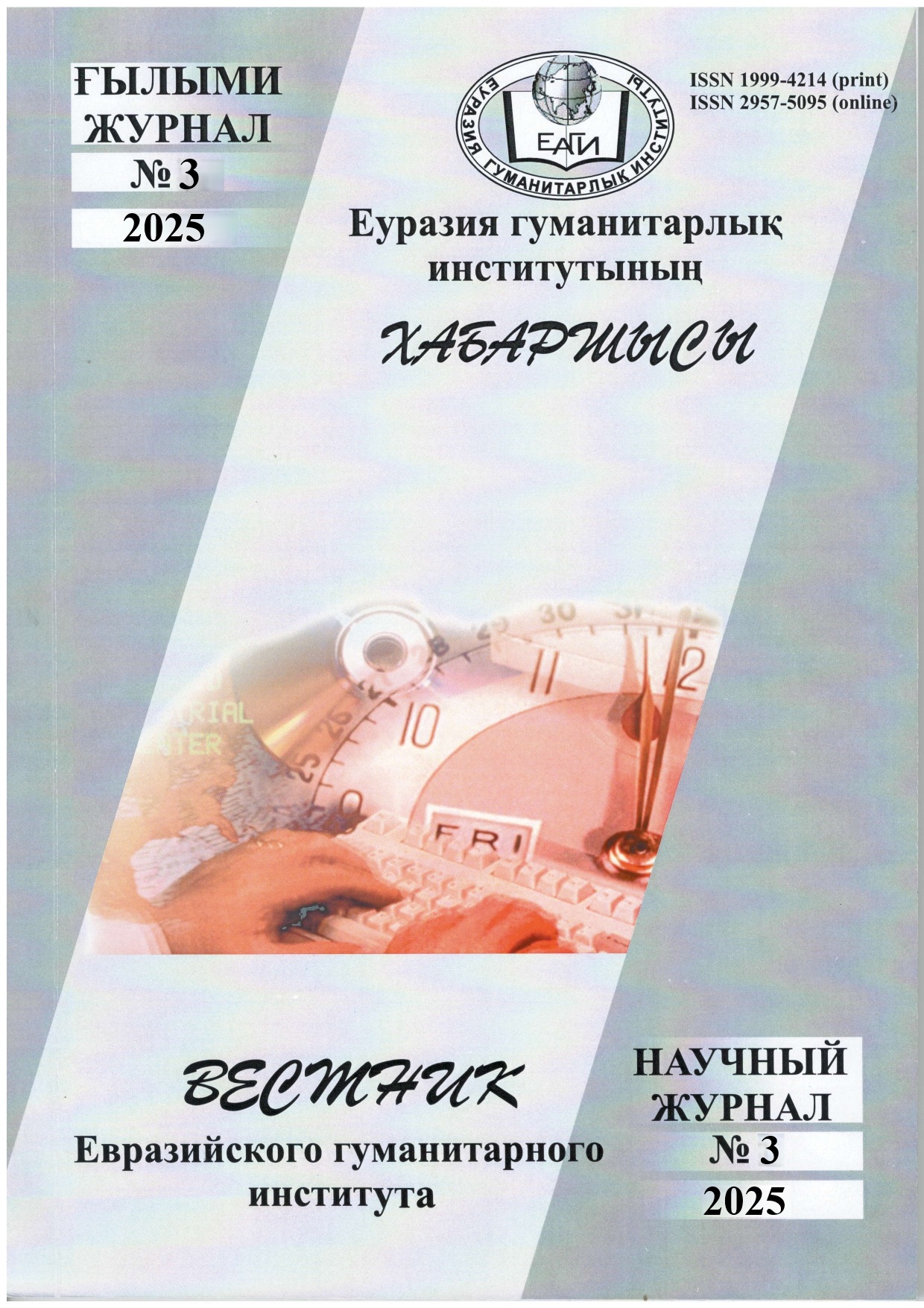*ABAI’S POETRY LIBRARY: TRADITIONS OF MEDIEVAL TURKIC POETRY
DOI:
https://doi.org/10.55808/1999-4214.2025-3.15Keywords:
Abai studies, poetic library, poetic form, medieval Turkic written poetry, Chagatai language, Muhammad, eastern Muslim literature.Abstract
The study of Abai’s poetry through the classification of verse forms constitutes a fundamental direction that has been established on a scientific basis within the history of Abai studies and has significantly expanded its scope. In his seminal work Әдебиет танытқыш (The Fundamentals of Literature), Akhmet Baitursynuly devoted special attention to the structure of Abai’s verse, poetic forms, and meters. In this regard, the views of Ilyas Zhansugurov and Gabdrakhman Sagdi (1922, 1923) are also of particular importance. The traditional foundations of Abai’s poetry were thoroughly examined in the works of M.Auezov, S.Mukanov, G.Togzhanov, E.Ysmailov, K.Zhumaliev, Z.Akhmetov, Z.Shashkin, and A.Nurkatov. Within the history of Abai studies, the investigation of verse forms has crystallized into a distinct scholarly orientation, one that considers the poetic foundations of Kazakh poetry in conjunction with the influences of Eastern classical literature as well as Western and Russian poetics. Recognizing the periodical character of any scientific problem highlights the continuing relevance of researching Abai’s poetry through the lens of verse forms and the confluence of traditions. During the Soviet period, opportunities for conducting specialized thematic studies on the Eastern motifs in Abai’s poetry and on the traditions of medieval Turkic verse were significantly constrained. Instead, priority was given to analyzing Abai’s verse meters in relation to Russian poetic influence and the forms established therein. At the same time, the leading Abai scholar M.Auezov asserted that Abai never abandoned the “Eastern shore” he had turned to in his youth, maintaining this orientation until the final years of his life, as reflected in his work Allah’s Essence Is Truth, His Word Is Truth. Nevertheless, this dimension remained marginalized in studies of Abai’s verse forms. In the research of M.Myrzakhmetov and the works of Ö.Kumisbaev, dedicated to the theme of “Abai and the East,” the genre types and poetic features of Eastern literature are noted; however, a concrete comparative analysis of verse-form traditions with Abai’s poetry was not possible. The independence era opened the way to comparative studies of Kazakh literary history with Arabic classical literature and the written tradition of medieval Turkic poetry. Yet, due to the shortage of specialists and issues of research funding, this crucial scholarly and theoretical direction has not been actively pursued. This article presents a detailed analysis of the relationship and influence of medieval Turkic literature on Abai’s creative legacy.


